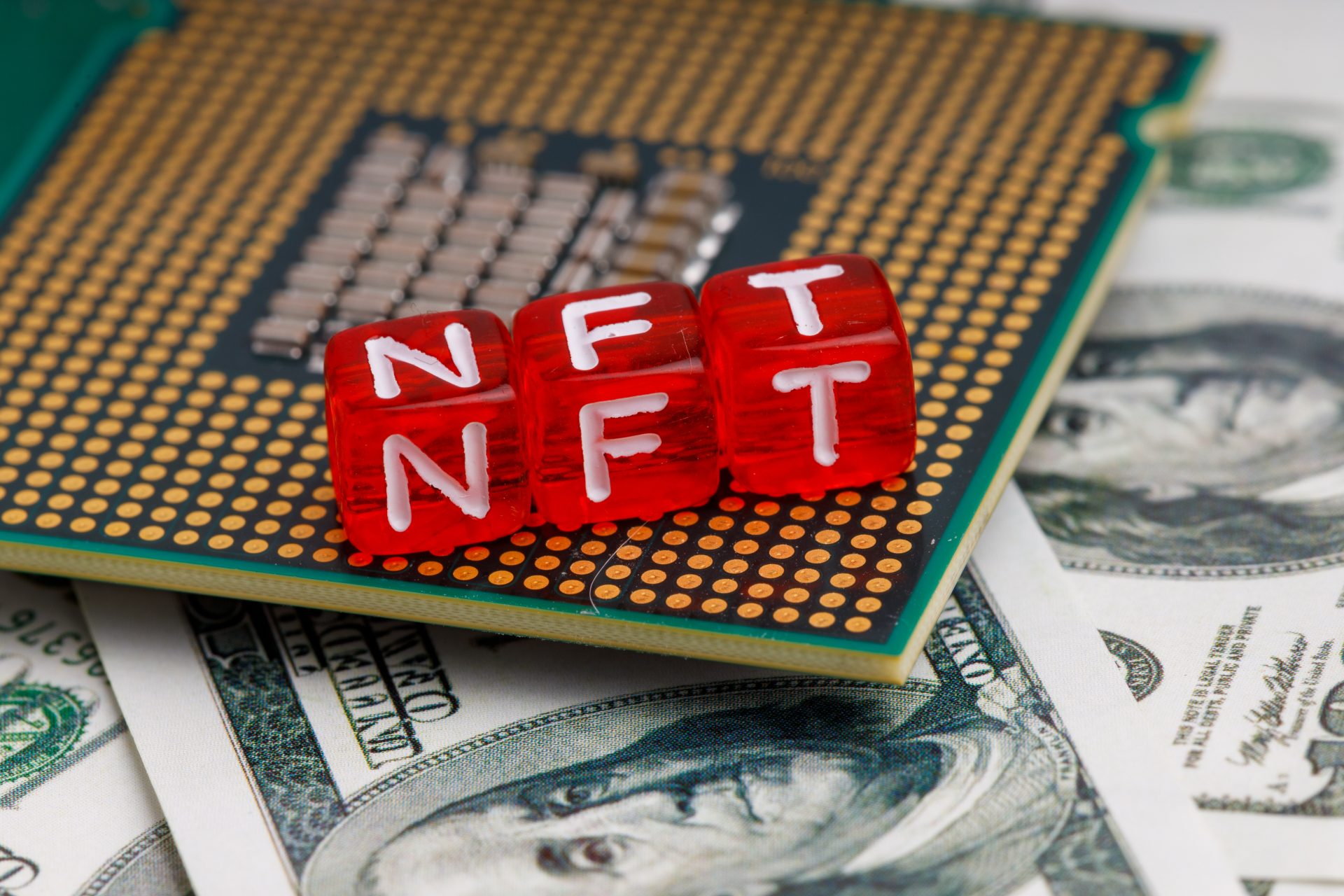By Gail Cole.
Not many people had heard of a non-fungible token (NFT) a decade ago, yet by 2021, NFT art was selling for millions. Everydays: The First 5000 Days sold for $69.3 million in March 2021, The Merge for a whopping $91.8 million nine months later. That kind of money could turn any tax official’s head.
But is the sale of an NFT subject to tax? Should it be? While lawmakers and tax officials worldwide have at least 91.8 million reasons to ensure tax laws account for sales of NFTs and other new tech, crafting tax policies for NFTs is difficult. You can’t tax something you don’t understand, and relatively few people fully understand NFTs.
So …
What is an NFT?
A non-fungible token, or NFT, is a unique digital identifier that certifies the authenticity and ownership of a physical or digital good or service. If that sounds like a foreign language to you, you’re not alone.
Each NFT is created through minting, a process that puts the NFT on a decentralized, digital ledger called a blockchain. There are many different blockchains, including Ethereum and IBM Blockchain.
Developers create and manage NFTs through something known as a smart contract, which is a program on the blockchain that runs when certain predetermined conditions are satisfied. “Smart contracts are beneficial because they automate the sale agreement,” explains David Lingerfelt, Senior Director of Indirect Tax at Avalara. “Among other things, the smart contract governs access, use, and enjoyment of the NFT — specifically copyright, licensing, and royalties.”
The first NFTs represented digital assets, not physical goods or services in the real world. Today, almost anything can be an NFT: an avatar; digital artwork; music; videos; a membership to a club in the real world (including food to eat and beverages to drink); shoes for your avatar and your very own feet.
An NFT cannot be copied, subdivided, or substituted, but it can be bought and sold. In 2021 alone, NFT sales totaled $24.9 billion, by some estimates. Consequently, while NFTs are clearly the purview of creators, developers, and entrepreneurs, they’ve caught the eye of tax officials worldwide.
Are NFTs subject to sales tax?
To date, only a handful of states have addressed the taxability of NFTs.
In January 2022, Puerto Rico proposed treating NFTs like digital products for tax purposes.
In May 2022, Pennsylvania announced that sales tax applies to the retail sale of an NFT representing taxable tangible personal property as well as the retail sale of an NFT that grants ownership or use of a taxable product or service. An NFT representing a nontaxable product or service (like clothing) is sales tax exempt.
According to the Pennsylvania Department of Revenue, “NFTs have been subject to sales and use tax since the addition of digital goods in Act 84 of 2016.” However, “the department is not planning any retroactive enforcement with regard to taxes owed on NFT sales that occurred prior to the May 2022 issuance of the updated guidance.”
Interim guidance issued by the Washington State Department of Revenue in July 2022 identified four basic types of NFT transactions and how each would likely be taxed:
- If the object of the purchase is a stand-alone digital NFT, Washington sales tax as well as business and occupation (B&O) tax generally applies.
- If the object of the purchase is a stand-alone tangible good or service classified as a retail sale rather than the NFT itself, Washington sales tax as well as business and occupation (B&O) tax generally applies.
- If the object of the purchase is a stand-alone good not classified as a retail sale rather than the NFT itself, Washington sales tax generally doesn’t apply but B&O tax or another tax may apply.
- If the sale of an NFT includes a royalty payment, the royalty payment would not be subject to Washington sales tax, but royalties B&O tax would apply to gross income earned from royalties.
In both Minnesota and Wisconsin, the sale or purchase of an NFT is taxable if the underlying product, good, or service is subject to sales tax.
If tax officials in other states have yet to issue guidance on the taxability of NFTs, it’s likely because the technology is new, complex, and changeable. In fact, the guidance described above could already be considered a bit out of date because none of it mentions off-chain or dynamic NFTs.
Can tax policies keep up with technology?
A digital NFT can be either on-chain or off-chain.
An NFT is on-chain when the asset itself and all its metadata are stored on a blockchain or digital ledger. CryptoPunks are good examples of on-chain NFTs.
An NFT is off-chain when some aspect of the NFT is not stored on a blockchain. Charlie Bit My Finger is an off-chain NFT because although the video metadata is on a blockchain, the digital asset (video) itself is not. Most digital NFT assets are off-chain because on-chain storage is quite expensive.
Any NFT tied to a physical good or service must be off-chain because it’s impossible to store a physical good or service on a blockchain. At least for now.
Though states generally haven’t addressed on-chain vs. off-chain NFTs, Italy has. A proposed NFT tax regulation issued by the Italian Revenue Agency in June 2023 recommends adopting a look-through approach for NFT taxation, meaning the NFT is merely the vehicle for transferring goods, services, and associated rights. As a result:
- On-chain NFTs are electronically supplied services subject to value-added tax (VAT)
- Off-chain NFTs are subject to VAT only if the underlying asset is subject to VAT
Italy’s proposed guidance also states that an NFT is exempt from VAT if all the NFT rights are assigned by its creator. Had The Merge sold in Italy back in December 2021, it would have been VAT exempt. If the current owner, who is not the creator, was to sell it in Italy today, the sale would be subject to Italian VAT. This exemption is in step with existing Italian VAT law.
An NFT can be static or dynamic.
A static NFT is fixed: The token ID and contract address cannot be changed after the NFT has been minted, and it’s difficult to change the metadata. Everydays: The First 5000 Days is an example of static NFT digital art. Digital tokens collected in digital games are also static NFTs.
A dynamic NFT is the opposite, as certain aspects can be altered, programmed, or updated. NFT event tickets are typically dynamic, as is virtual property.
Should taxability be affected by the nature of an NFT, whether it’s dynamic or static? To date, no tax authority has addressed this issue. However, the European Commission’s Value Added Tax Committee referenced dynamic NFTs in a working paper on non-fungible tokens published in March 2023. The paper also discusses the potential tax treatment of NFT minting and NFT trading, and summarizes how Belgium, Norway, and Spain have answered questions concerning the taxation of NFTs.
Still, the taxability of NFTs remains very much an open question.
The nature and tax treatment of NFTs are not settled
“The nature of NFTs is not yet settled,” observes the VAT Committee at the start of its working paper, “and therefore the VAT treatment of related supplies is also unsettled.” This is the crux of the matter for tax authorities worldwide.
The rapidly evolving nature of technology is exacerbating the complexity. As the digital artist Beeple recently observed, “We’re still very early in the concept of owning digital things.” Thus, even as tax officials struggle to work out the taxability of NFTs, they need to keep an eye out for whatever comes next. (Will the taxman come for AI?)
Interested in learning more about NFTs and related tax issues? Check out the following posts:
- Taxing the metaverse: The basics
- Selling goods in a virtual world can have real tax implications
- Will there be a sales tax holiday in the metaverse?
- Unchartered territory: How to tax NFT sales
- Will Italy be first nation to exempt NFT art from VAT?
- Demystifying the taxation of NFTs
==
Gail Cole is a Senior Writer at Avalara. She’s on a mission to uncover unusual tax facts and make complex laws and legislation more digestible for accounting and business professionals.
Thanks for reading CPA Practice Advisor!
Subscribe Already registered? Log In
Need more information? Read the FAQs
Tags: Digital Currency, Income Taxes, IRS, Taxes





